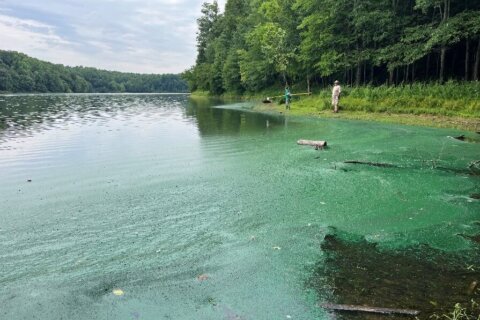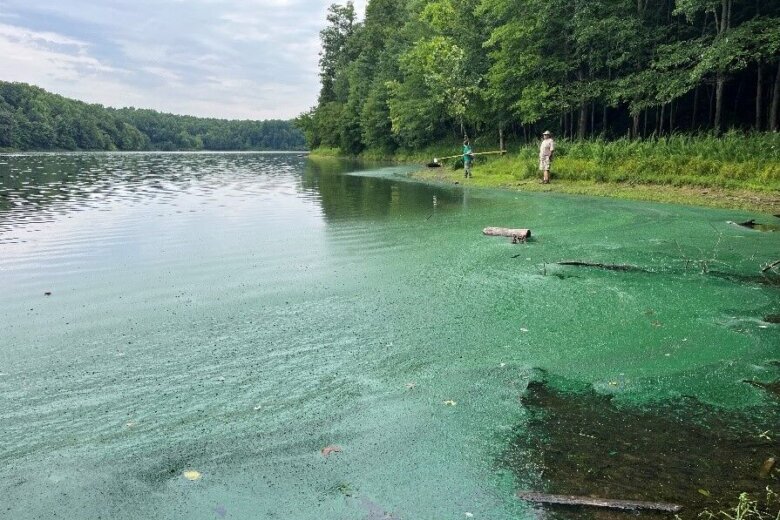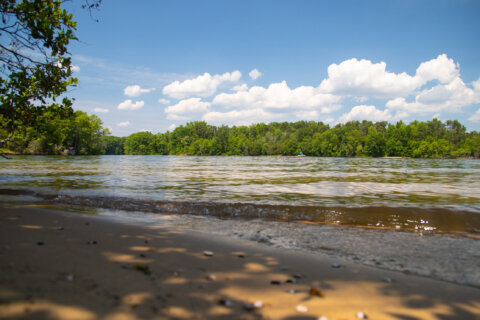
Montgomery County’s parks department has found high levels of cyanobacteria, also referred to as blue-green algae, in Derwood, Maryland’s Lake Frank and Lake Needwood.
Recent tests showed the presence of microcystin, a toxin produced by a species of cyanobacteria. According to the park system’s website, microcystin is a toxic compound “that is harmful at elevated levels occurring during algal blooms.”
Matt Harper, natural resources manager for Montgomery Parks, said test results obtained Friday exceed the eight parts per billion limit set by the World Health Organization for water in recreational settings.
Earlier this week, advisories were posted letting park visitors know they should avoid direct contact with the water while fishing or boating, and that they should keep pets out of the water and not allow them to drink from the lakes.
Harper said algae is found naturally in lakes: “This is definitely something that we see seasonally.”
Hot, dry weather and an excess of nutrients contribute to large algae blooms, according to Harper.
Microcystin can cause skin and eye irritation, so Harper said, “if your skin comes in contact with the water,” visitors should wash their skin with tap water soon afterward. Hands should also be washed thoroughly before eating, drinking or smoking.
“The real risk” with microcystin, said Harper, is if visitors ingest the water.
“That’s not really a risk for humans, because people know enough not to drink lake water,” said Harper, but it is a potential threat for pets, “who may not be as picky about their drinking source.”
Microcystin is a hepatotoxin, meaning it can cause liver damage when ingested. Nausea, upset stomach and headaches can result as well.
Harper said swimming is not allowed at either lake, and pets are required to be on-leash at all times. Those rules — in effect year round — are more important under the current conditions.
Recreational boating and fishing are still allowed, but Harper repeated that visitors who come in direct contact with the water will want to make sure to wash affected areas after exposure. And if pets wade in the water, their fur should be rinsed as well.
Montgomery Parks officials said they will continue to monitor the water at both lakes until the bloom subsides.
Get breaking news and daily headlines delivered to your email inbox by signing up here.
© 2024 WTOP. All Rights Reserved. This website is not intended for users located within the European Economic Area.









